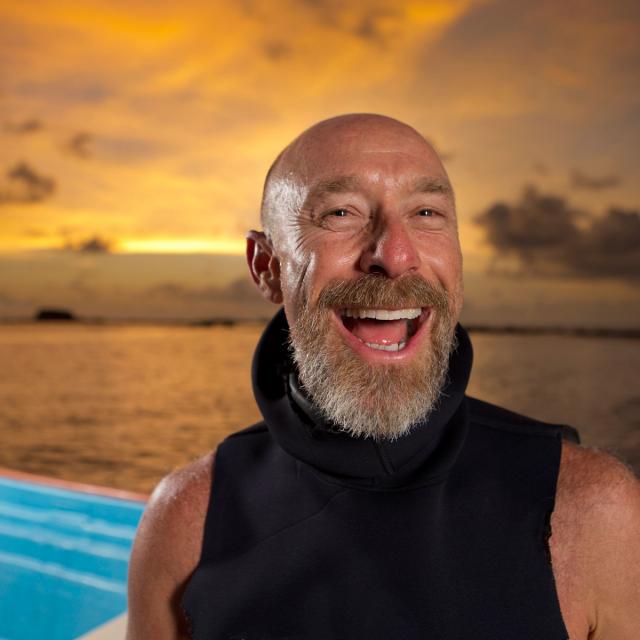
Kenny Broad (2/50)
CCS was honored to showcase 50 individuals and activities during our 50th Anniversary in 2017-2018 to share our rich history. Take a look at the amazing people responsible for making our unconventional College possible!
Kenny Broad’s journey from a BA in CCS Literature to a PhD in Anthropology from Columbia University to joining Miami University’s faculty and becoming National Geographic’s 2011 Explorer of the Year is anything but ordinary. While he is now a world-renowned cave diver, he joined CCS while still searching to find his place at UCSB. His passion for academia stemmed from the exceptional learning experience CCS offers all of its students. This profile is a shortened version of a longer interview that Kenny did with CCS earlier this year.
CCS: What drew you to CCS as a student?
Kenny Broad: I guess I was a student in search of a major, so I tried just about every major possible and found a lot of interesting things but nothing that really stuck. That might have been in part because of the larger classrooms that a lot of the introductory classes were taught in with lots of students. It just didn't really foster the kind of space for creativity on the student side anyway--at least for the most part. Then I actually ended up leaving school for a year and a half, and when I came back I was always kind of intrigued by the non-descript building with this strange title 'College of Creative Studies'. I happened to follow a dog into it, trying to meet the dog's owner, and I ended up walking right into an art reception that was going on in CCS. That is how I learned about it and I ended up applying. I picked Literature because I always liked to read and I kind of enjoyed writing. In retrospect, I am very glad that I chose that because no matter what field you end up in, you still have to communicate. Whether it is the quantitative sciences or out in the private sector, it is critical. You can make up for a lot with good communication.
I actually ended up leaving school for a year and a half, and when I came back I was always kind of intrigued by the non-descript building with this strange title 'College of Creative Studies'.
CCS: When you were in CCS, do you remember what you thought your career would look like?
KB: I had no clue, I still don't. I get surprised from situations I find myself in all the time.
CCS: That is interesting, especially because many of today’s CCS students seem to have a definitive plan for their career during their time here.
KB: I have a lot of respect for people who have a drive and passion for one particular topic, I really do. My wife is like that. From when she was a kid, she knew she wanted to work on physics and she stuck with it and is now a university professor. She did her undergrad and grad in physics so I am not belittling those people; it is just not the way I work. Maybe that is why I chose anthropology as a PhD, because it is inherently interdisciplinary and inherently social. I learn better from direct contact from people. I think, again, that’s what was so great about the small class size at CCS.
CCS: You said in a previous interview that 'real life experiences are what shape us'. What real life experiences shaped you the most?
KB: I think certainly my interest in pursing environmentally related issues was driven by actually physically going to remote places and seeing what kind of impact even small populations of humans can have on the environment and how those changes in the environment can then feedback and influence local culture. So reading about it in a book is one thing. Diving with the locals in a place and hearing their stories of how things have changed and their understandings of why they have changed sort of brought it to life is another.